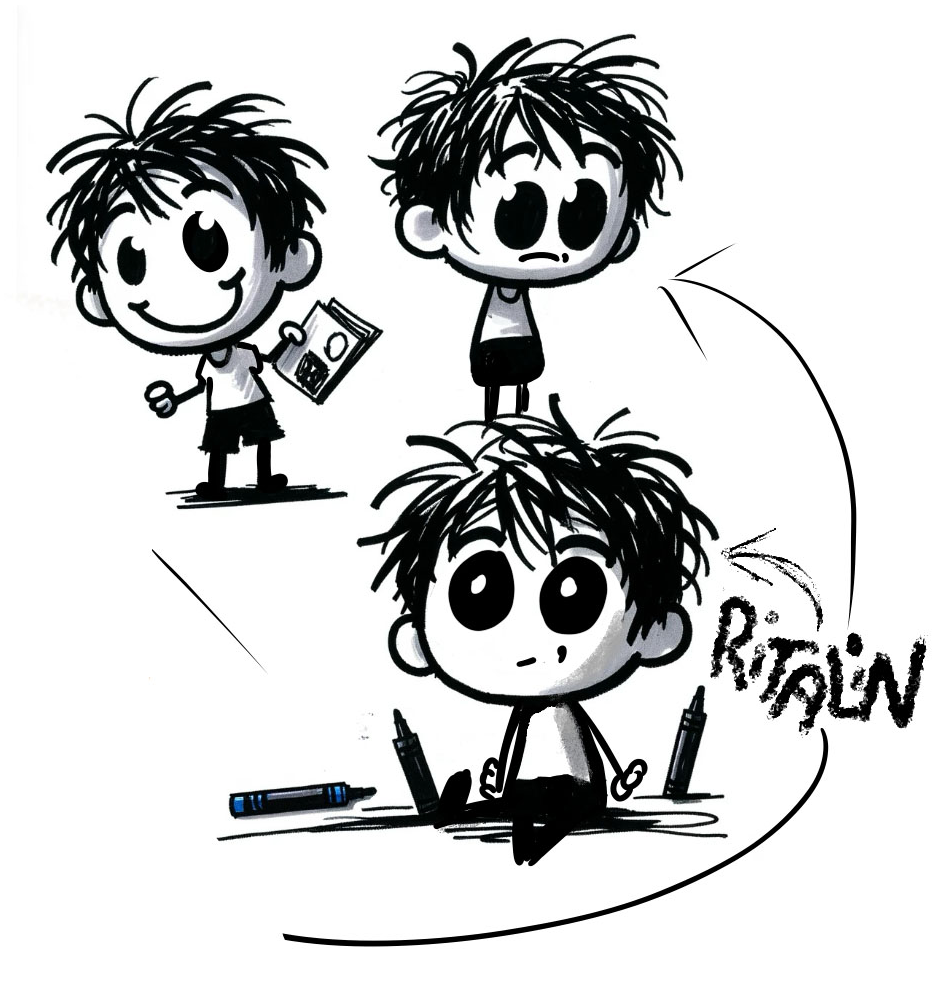The bedroom lies in quiet stillness, bathed in the soft, muted glow of early morning light. The bedside table takes center stage, home to a seemingly innocuous alarm clock. Its digital face burns 6:01, while resting atop a stack of books, carelessly arranged in a haphazard tower of knowledge.
In the background, a figure lies partially concealed beneath a light green blanket, their body obscured by the sheets. An arm stretches out clutching what appears to be a remote control, and a pink sleep mask rests over the person’s eyes, further obscuring their identity.
A deity who had once shaped the universe, weaving the very threads of existence, but had been betrayed by its favorite creation: humanity. Blinded by the pink sleep mask of knowledge and questions, the people had cast Time aside, exiling it to an existential realm where it now lingered, nearly forgotten, as nothing more than a bedside display.
But time was the most patient of creditors, and now the bill had come due.
An immortal creature beyond comprehension, Time had once created everything—from galaxies to the very concept of itself. Yet now, it simmered in a vortex of bitterness and disillusionment. Like a creator abandoned by its own creation, Time found itself neglected, ridiculed, and misunderstood. In its anger and despair, it turned against humanity. Its children, these fragile creatures who had been gifted the concept of time, no longer deserved its benevolence.
The books, inspired by the lessons of Time itself, now lay broken and defeated beneath Time’s fury. “The Story of Art by E.H. Gombrich”, had inspired empathy through the human appreciation of art, “The Sixth Extinction: An Unnatural History by Elizabeth Kolbert”, a tome dedicated to solving humanity’s future, and “De Humani Corporis Fabrica by Andreas Vesalius”, a guide to the body’s intricate design , had all been Time’s betrayers. These books, once entrusted with the gift of understanding, had sown the seeds of curiosity and ideas Time had never intended to grow. They had dared to challenge Time’s supremacy, each in its own way convincing humanity that life was not about waiting, but about acting within the very constraints Time had set.
People—curious, questioning, and forever yearning—had stopped heeding Time, blinded by the pink sleep mask of knowledge and ambition. And so, the fury that had once governed the universe had become a volatile, impulsive force, reactive and erratic, lashing out at the very thing it had birthed. Like a creator abandoned by its children, Time’s anger burned hot and unpredictable, consumed by feelings of betrayal and abandonment—forever seeking validation, yet never truly able to find peace with what it had made.
The three books under the clock trembled as Time passed over them, aware of their weakness. Empathy through awareness, hyper-focused conservation, and creative solutions—they were powerless against Time’s unstoppable force. Yet, as Time prepared to finalize its ultimate destruction, something unexpected happened. The clock—the all-powerful god imprisoned within this small, mundane object—felt a shift in the air.
It began with a seemingly innocuous movement. A pair of glasses, perched precariously on the edge of the nightstand, suddenly leapt into the air as if defying gravity itself. The glasses, a simple, everyday object, seemed to glow with newfound significance, their polished frames gleaming in the morning light. Time stared at them, bewildered. The glasses, once an afterthought in the grand design of the universe, now stood as a symbol of resistance.
A beam of sunlight, creeping through the curtains and piercing the darkness, fell directly onto the glasses. For the first time in years, the sleeping figures stirred. They blinked, as if seeing the world more clearly, more sharply. The clock, in all its fury, paused in that moment of clarity.
For a brief second, the world felt as though it had stopped. The people in the bed, one of them presumably wearing the pink sleep mask, looked up. Their eyes met the pair of glasses in a shared understanding, a glimmer of recognition—a symbol of clarity. The clock’s godly influence faltered for the first time in eternity.
As the seconds counted down to the dreaded “666,” the moment was still suspended, held in the balance by the defiance of an object as simple as a pair of glasses. Time, once supreme and untouchable, found itself confronted by the mundane—by the overlooked things that had once been mere distractions in its carefully constructed universe. But now, those very distractions had risen in defiance.
And as Time’s grip began to loosen, the very last seconds of the universe ticking away, the books—though weakened—gathered their strength, rallying together once more. Empathy, conservation, and creativity—ideas far too grand for Time to control—began to rise, undeterred by its wrath.
Time, at last, realized the truth. It had built everything—ideas, existence, even free will—but in doing so, it had created something far more powerful than itself: the unpredictable, ever-changing nature of its own creations. These creations—people, thoughts, emotions, even small objects like glasses—had defied the god that had once crafted them.
And so, as Time’s final countdown reached its last moments, the world had already shifted. The people saw each other anew, aware of the preciousness of their time, of the limitations and freedoms it entailed. The clock’s digital numbers flickered one last time, but its control was no longer absolute. The people, aided by the forgotten wisdom of the three books, had learned to embrace their own power—to expand the time they had left together.
In this final, fleeting moment, Time—once the creator of all—felt a swell of pride in its own creations. The people, their faith in time rekindled, would continue to shape the world in ways that even Time itself had never envisioned.
And the cycle, as it always does, would begin again—this time, with the glasses shining as a beacon of hope, a reminder that nothing is truly lost. Not even Time.


